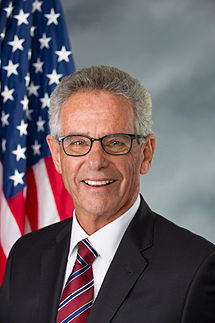 Do you ever, on a libertarian whim, seize the opportunity to shop outside of Long Beach on occasion for the mere opportunity of receiving free grocery bags? Those 10 cents per grocery trip can add up, if you habitually forget to pack that reusable grocery sack.
Do you ever, on a libertarian whim, seize the opportunity to shop outside of Long Beach on occasion for the mere opportunity of receiving free grocery bags? Those 10 cents per grocery trip can add up, if you habitually forget to pack that reusable grocery sack.
Well, that option may be a thing of the past, with Long Beach Congressman Alan Lowenthal’s new bill, aimed to (fortuitously) protect the environment.
Today, Lowenthal introduced a bill that proposes the country takes the state of California’s approach to single-use carryout bags by charging a nominal fee of 10 cents for their use—nationwide.
“I’m proud of the fact that cities in my District and throughout California have led the way on dealing with plastic bag pollution, but it is time for us to take action at a national level,” Lowenthal said in a statement. “Plastic pollution is one of the most visible environmental impacts of our consumer age. All Americans can reap the same benefits that California has: less plastic pollution and a higher quality of life.”
According to a release issued today, the bill proposes a minimum of a 10 cent fee is charged for each bag provided by retailers to carry out groceries and other purchased items, permitting retailers to retain four cents per bag if they have a qualifying recycling program. The bill also allows for reusable bag giveaways for promotional reasons and the transfer of funds raised by a fee to the Land and Water Conservation Fund to support projects that protect and conserve the environment.
The release stated that 210 municipalities, including Long Beach, across 17 states and the District of Columbia, have instituted such ordinances.
Sponsors of the bill include representatives Don Beyer (VA-08), Earl Blumenauer (OR-03), Sam Farr (CA-20), Barbara Lee (CA-13) and Ted Lieu (CA-33).
According to Lowenthal’s office, studies have shown that the best solution to plastic bag trash is to place this fee on grocery bags. Local governments worldwide that have enacted such programs have seen dramatic reductions of 60 to 90 percent in the number of bags used.
Above, left and above, right: file photos.


